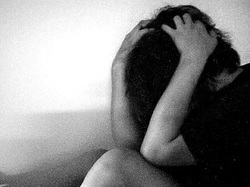
Depression is a common mental health problem that affects people of all genders, ages, and backgrounds. About two thirds of adults will at some time experience depression severe enough to interfere with their normal activities. Depression causes symptoms such as low mood, loss of interest in enjoyable activities, anxiety, irritability, low self-esteem, disturbed sleep or appetite, weight change, tiredness, lack of motivation, concentration or libido, physical pain, and suicidal thoughts. Depression is likely to result from a combination of genetic, biochemical, environmental, and psychological factors. It may be triggered by stressful events, such as bereavement, illness, relationship problems or financial difficulties.
MODERN TREATMENT FOR DEPRESSION
Modern medicine typically treats depression with a form of psychotherapy and/or anti-depressant drugs regardless of the specific symptoms presented by the depressed patient.
HOW TRADITIONAL CHINESE MEDICINE VIEWS DEPRESSION
In contrast, Traditional Chinese Medicine (TCM) does not recognize depression as a particular illness per se, but it aims to treat the specific symptoms that are unique to the individual using a variety of techniques such as acupuncture. Based on a holistic approach, acupuncture consists of fine needles inserted along various points in the body, with the purpose of stimulating the body's flow of energy and functionality, known as Qi. Acupuncture is being increasingly used in psychiatric disorders.
STUDIES OF ACUPUNCTURE FOR DEPRESSION
Since the early nineties, studies around the globe have suggested that treating depression with acupuncture has a positive and holistic effect on depressed patients, particularly when used in combination with psychotherapy and herbal treatments. The effect of acupuncture on depression has been documented repeatedly in controlled studies. Acupuncture is comparable with amitriptyline in the treatment of depression but has no side-effects. Psychologist John Allen, from the University of Arizona in Tucson, and Acupuncturist Rosa Schnyer, conducted the very first pilot controlled study on treating depression symptoms with acupuncture in the Western scientific world. The study findings suggest that using acupuncture alone could be as effective as other types of treatments for relieving depression symptoms typically used in Western medicine, such as psychotherapy and drugs.
The United Nations World Health Organization has approved acupuncture as a treatment for depression.
IS ACUPUNCTURE SAFE?
Acupuncture can be safely combined with conventional medical treatments such as anti-depressants, helping to reduce their side effects and enhance their beneficial effects. In addition to offering acupuncture and related therapies, your TCM practitioner will often make suggestions as to dietary and other lifestyle changes that may be helpful in overcoming depression.
MODERN TREATMENT FOR DEPRESSION
Modern medicine typically treats depression with a form of psychotherapy and/or anti-depressant drugs regardless of the specific symptoms presented by the depressed patient.
HOW TRADITIONAL CHINESE MEDICINE VIEWS DEPRESSION
In contrast, Traditional Chinese Medicine (TCM) does not recognize depression as a particular illness per se, but it aims to treat the specific symptoms that are unique to the individual using a variety of techniques such as acupuncture. Based on a holistic approach, acupuncture consists of fine needles inserted along various points in the body, with the purpose of stimulating the body's flow of energy and functionality, known as Qi. Acupuncture is being increasingly used in psychiatric disorders.
STUDIES OF ACUPUNCTURE FOR DEPRESSION
Since the early nineties, studies around the globe have suggested that treating depression with acupuncture has a positive and holistic effect on depressed patients, particularly when used in combination with psychotherapy and herbal treatments. The effect of acupuncture on depression has been documented repeatedly in controlled studies. Acupuncture is comparable with amitriptyline in the treatment of depression but has no side-effects. Psychologist John Allen, from the University of Arizona in Tucson, and Acupuncturist Rosa Schnyer, conducted the very first pilot controlled study on treating depression symptoms with acupuncture in the Western scientific world. The study findings suggest that using acupuncture alone could be as effective as other types of treatments for relieving depression symptoms typically used in Western medicine, such as psychotherapy and drugs.
The United Nations World Health Organization has approved acupuncture as a treatment for depression.
IS ACUPUNCTURE SAFE?
Acupuncture can be safely combined with conventional medical treatments such as anti-depressants, helping to reduce their side effects and enhance their beneficial effects. In addition to offering acupuncture and related therapies, your TCM practitioner will often make suggestions as to dietary and other lifestyle changes that may be helpful in overcoming depression.
Hannah O'Connell Acupuncture, Orchard Wellness Centre, 1 St Anthony's Terrace, Harmony Row, Ennis, Co.Clare
Tel: 0867777897
Tel: 0867777897